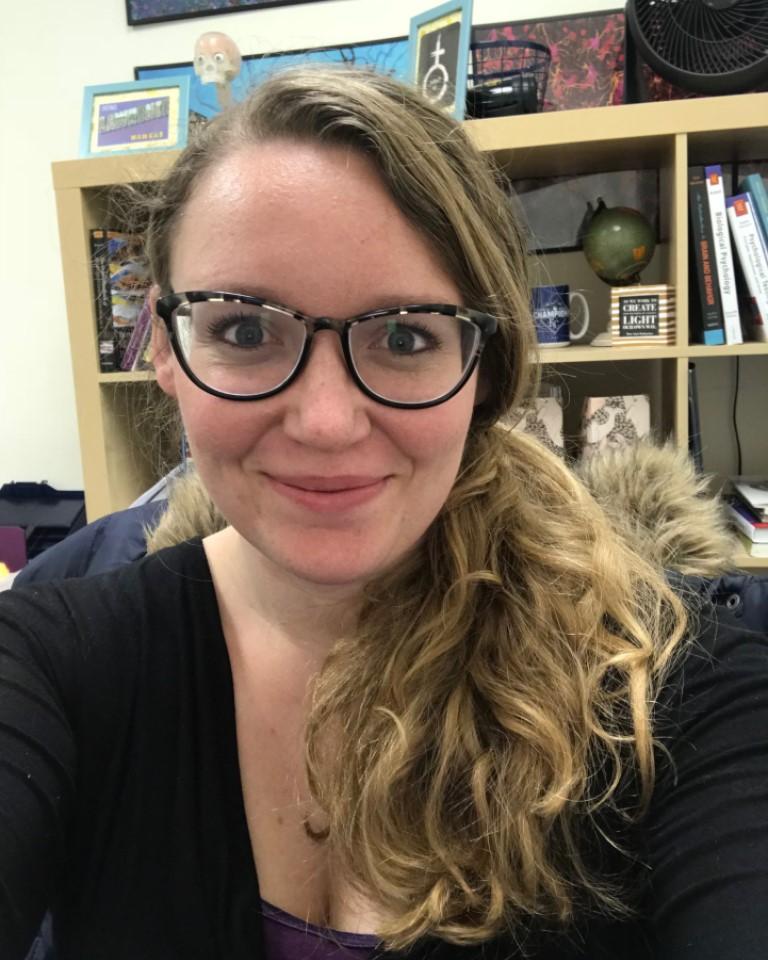Kayci Vickers

Alumni Spotlight | February 2021
Undergraduate KU major: Behavioral Neuroscience
Graduation Year: 2013
Current occupation: Postdoctoral Fellow in Geriatric Clinical Neuropsychology At Emory University School of Medicine
Research mentors while at KU: Evangelia Chrysikou, Todd Little, John Colombo
Describe the undergraduate research/creative experience that you had while at KU: While at KU I was fortunate to be involved in multiple research projects and labs. I became involved in research my sophomore year in Dr. Colombo's infant cognition lab where we were looking at the effects of DHA on cognition. At the same time, I became very interested in statistics and worked as an intern within the Center for Research Methods and Data Analysis while completing my minor in quantitative psychology. During my 4th and 5th years, I was fortunate to work in Dr. Lila Chrysikou's lab where I completed an honors thesis looking at the effects of transcranial direct current stimulation (tDCS) on problem solving and creativity in college students.
Q: What do you think was the most important thing you learned while doing undergraduate research?
A: I learned so many important things about research at KU, but I think the most important was the power of statistics. At KU, it was instilled in me that statistics is not so much math but a form of logic, and that correctly and clearly interpreting the story your data are telling is an art. One of the assignments that stuck with me most was in a graduate level stats course where we were told to "prove" a hypothesis we knew was wrong. It was surprisingly easy for everyone in the class to twist our statistics to look like this totally wrong hypothesis was true. It demonstrated so clearly why we need to be constantly checking for bias in research (including in our own analyses) and why it is so important to be transparent when sharing your methods and results.
Q: What advice do you have for undergraduates who might be interested in doing research or creative scholarship?
A: Dive in! There's so much research happening at KU and my best advice is to take advantage of it. Find a professor that's doing something you think it interesting and email them. It is honestly as simple as that. I would also say to be aware that you may need to try a few research areas before you find something you're passionate about. I started out working with kids and quickly learned that was not for me. I changed course after my independent study was over and have been working exclusively with adults and older adults ever since.
Q: Do you use any of the skills or perspectives gained doing research in your current occupation? How so?
A: I use what I learned at KU all the time. I've remained in research over the years and my experiences at KU very much set the stage for this. Some of the major skills I regularly use are analytical and creative problem solving, statistics, research methods, and computer programming. At KU I learned to value mentorship and to always have a mentoring team, which is something that has been key to my professional life.
Q: Many undergraduate researchers are making decisions about what to do after they graduate from KU. Having been in those shoes, what do you know now that you wish you’d known then? Do you have any advice?
A: I wish I had known that there's no shame in taking alternative paths. When I was preparing to graduate at the beginning of my 4th year I realized that I didn't know for sure what I wanted to do next, and that I was missing key experiences to be competitive for graduate school (for me, this was clinical work and research productivity). After a lot of sleepless nights and doubting myself, I decided to take a 5th year to improve my CV and apply to graduate school. THIS MADE ALL THE DIFFERENCE IN THE WORLD. I was much better prepared, knew what I wanted, and had the chance to get important experiences under my belt. I ended up getting my first choice of graduate programs and the things that set me apart from other applicants were the experiences I sought in my extra year. I think there's a stigma to taking longer to graduate or choosing to take a year or two off before taking "the next step," but honestly, no one looks at that when you apply later on. They only care whether the person sitting in front of them is ready for the position they're applying for.